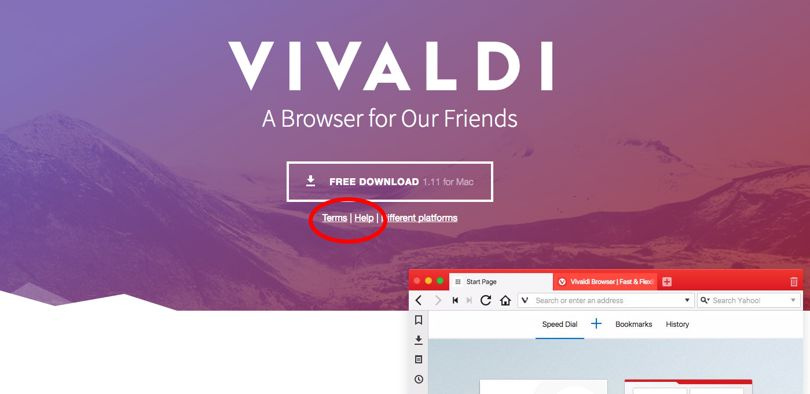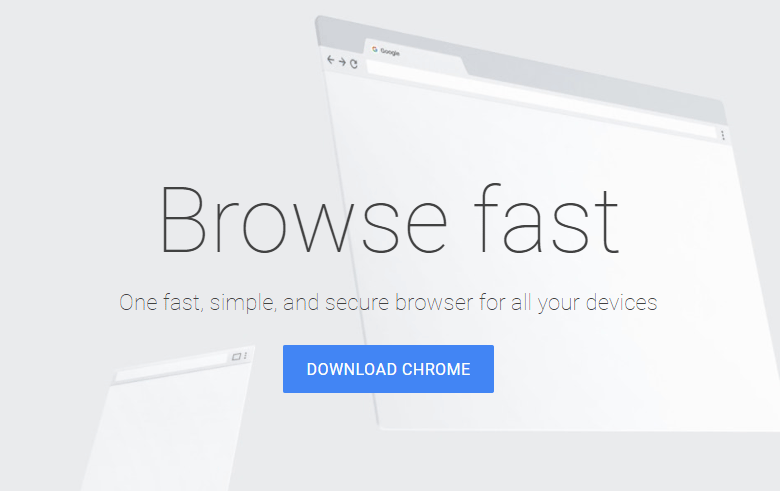Jon von Tötchner: Google deliberately puts a spoke in the wheels of the new browser Vivaldi, as it used to “crush” Opera

According to Von Techner, these links were added to the site as requested by Google.
Jon von Tötchner, the creator of Opera’s web browser, came down with accusations against Google. According to him, the search giant specifically prevents the spread of its new browser Vivaldi. According to the engineer, having a monopoly in search and advertising, Google "shows the inability to resist the temptation to abuse of power." Jon von Techner explained his position in the article “ My friends at Google: the time has come again not to be evil ” ( My friends at Google ), which was published in the official Vivaldi blog.
Jon von Techner writes that he has known Google for a long time. He recalls that in Opera they were the first to add Google search to the browser interface. At that time, Google really was a geek company, and its founders Larry and Sergey left a pleasant impression of real enthusiastic guys. In a sense, Opera even helped Google to unleash at the time when it was quite a popular browser, and Google - the new search engine unknown to anyone.
But over time, the situation has changed. Google began to grow, became close to Mozilla and integrated into Firefox, launched new services like Google Docs. “And then we saw the dark side of Google,” writes von Techner. “Not only were these new services incompatible with Opera, but they were directly pushing users to change the browser.” For the sake of millions of its users, Opera had to hide its user agent, only so Google services worked normally in a Norwegian browser. But the situation only worsened when Google released its Chrome browser.
In 2011, Jon von Techner left Opera Software Company due to disagreements with the board of directors and management, and in August 2014 he founded Vivaldi Technologies, which released the new Vivaldi browser. It promised to include many features that were present in Opera browser up to version 15. A number of functions, like the sidebar and the mode of displaying pictures on a web page, were directly made to follow the pattern of Opera 12, the latest classic version of Opera. Unfortunately, still not all plans are implemented, so that Vivaldi is in many ways similar to the usual Chrome clone.
The Vivaldi browser is based on Chromium and runs on the WebKit engine and KHTML. All these are free projects, the development of which is headed by Google. You would have thought that now no problems with the download of Google services will arise. But the reality was different. As von Tötchner says, they still have to hide the user agent, and the situation with Google "has reached a new bottom."
Now Google has begun to put pressure on the competitor not only through blocking the browser itself in its services, but also blocked the Vivaldi account in Google AdWords without warning. In response to fair indignation, Google representatives replied that in order to restore the Google AdWords account, Vivaldi should change the contents of its website (as shown in the first screenshot).
After almost three months of negotiations, the AdWords account was still restored, but Jon von Techner considers these events to be non-random. He suspects that Google deliberately puts sticks in their wheels and blocks a competitor for contrived reasons.
Icelandic programmer even wonders why Google blocked their account in late May. Coincidentally, it happened two days after his speech at the Oslo Freedom Forum , where he criticized Facebook and Google for excessively close surveillance of users and massive collection of personal data. Then he called for a ban on location tracking , which is carried out by Facebook and Google. And two days later, Google banned his account. “Was it just a coincidence? - he asks a question. “Or is it a deliberate action to send us a message?”
The founder of Vivaldi showed reporters Wired copies of letters that he sent from Google. They demanded that Vivaldi add links to the EULA (user license agreement) "within each button to download the program." This is a rather strange requirement, writes von Techner, considering that Google itself does not always comply with it .

In fairness, it should be noted that Google is not obliged to comply with this AdWords requirement, because there are no AdWords ads on its pages, and indeed for this reason many AdWords accounts, including those owned by companies that do not compete with Google, are blocked.
Jon von Techner says that the problem is not in the specific requirements themselves, but in the form in which Google presented them: aggressively, blocked without warning, and despite the fact that Google itself does not fulfill them. The programmer, with sadness, states that now Google is not the same geek, positive company as it was before.
All Articles